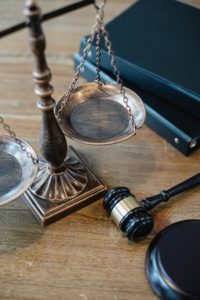Why whistleblower advocates should care about the Alien Tort Statute

False Claims Act (FCA) lawyers love to talk about our statute’s robust history, signed by Abe Lincoln to hold corporations accountable for cheating the government during the Civil War. The Alien Tort Statute (ATS) is a liability statute with an even longer history—passed as part of the First Judiciary Act in 1789, the ATS grants federal jurisdiction to cases concerning torts in violation of the law of nations. The law then sat largely dormant for over a century, similar again to the FCA.
Around the same time the FCA was strengthened in the 1986 amendments, human rights lawyers began reviving the ATS to bring cases to US courts concerning horrific human rights violations around the world. And, beginning in the 1990s, corporate liability attorneys began bringing ATS claims against corporations that committed (or willingly overlooked) horrific human rights violations in the name of profit.
Since then, companies have worked hard to chip away at the ATS in the courts by challenging the very idea that corporations can be liable under the statute. This argument was raised most recently in consolidated Supreme Court cases Nestlé USA, Inc. v. Doe 1 and Cargill, Inc. v. Doe 1, which were heard by the Court on December 1, 2020. Those cases concern allegations that multinational chocolate companies knowingly aided and abetted forced child labor in African cocoa fields.
This is, amazingly, the third time that the Supreme Court has heard a case about corporate liability under ATS in the last decade: first in Kiobel v. Royal Dutch Petroleum in 2012 (considering the broad question of corporate liability under the ATS and ultimately ruling on other grounds) and again in Jesner v. Arab Bank, plc (barring suits against foreign corporations under the ATS) in 2018. Now, companies want to shut down human rights liability for even US corporations.
Whistleblower advocates work hard to protect vulnerable individuals from powerful corporations who defraud the government, investors, taxpayers, and the public. ATS attorneys represent even more vulnerable populations—in Nestlé, children trafficked from Mali to Cote d’Ivoire and forced to work in dangerous conditions—facing equally powerful corporate interests. The plaintiffs in ATS cases are often as scared to come forward as FCA relators, and face many of the same retaliation risks, or worse.
Even more fundamentally, fraud and human rights abuses often go hand in hand, whether it is a company bribing a judge for a favorable ruling against a local community fighting an oil field, in violation of the Foreign Corrupt Practices Act, a company lying about its labor practices to obtain lucrative government contracts, a power plant misrepresenting the cleanup costs from an oil spill, or any of a host of other situations that put vulnerable populations at risk while defrauding the public.
A finding by the Supreme Court that a corporation cannot be sued under the ATS would be a bad outcome for all advocates concerned with corporate liability. Whatever twisted logic would be required to get there will necessarily chip away at the general principle that corporations must be accountable for their bad actions, whether it be human rights abuses or fraudulent lies.
The fiction that the corporate body should shield individuals from liability was well challenged during one particularly telling exchange in the Nestle Court hearing between Justice Kagan and Neal Katyal, the companies’ attorney, where Justice Kagan pressed Mr. Katyal to explain why 12 individual slaveholders could be liable for crimes against humanity but somehow protected from suit if they chose to adopt a corporate form. Mr. Katyal claimed that this was in fact the rule, but could not justify it—because there is no justification. Whistleblower advocates should be concerned that these questions were even raised at the Court, much less defended.
In 1666, a merchant named Thomas Skinner sued the British East India Company for committing acts of piracy by harming his ship on the open seas. The English courts acknowledged the imbalance of power between the parties, stating that “here is a poor man oppressed by a rich company” and found the company could in theory be held liable for its wrong. Those of us who fight the reaches of corporate power know the power exerted by the Goliaths we face. Whistleblower advocates should recognize our deep ties to human rights lawyers fighting to preserve corporate liability under the ATS. And, if the Court guts the law by ruling corporations exempt, we should be ready to think creatively with those attorneys about how whistleblower laws may be able to accomplish some of the same purpose.
If you wish to speak to a whistleblower attorney in our office, please contact us.
Read more:
- False Claims Act
- Our other posts on Human Rights
- I Think I Have a Whistleblower Case
- Whistleblower FAQs
Tagged in: FCA Federal, Human Rights, Whistleblower Eligibility,